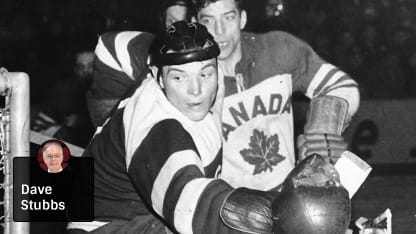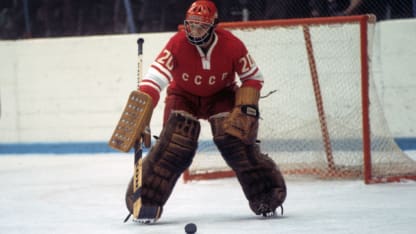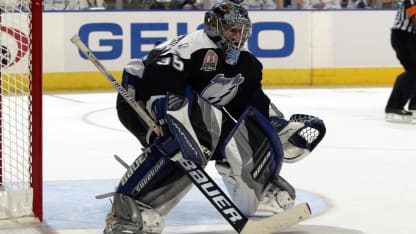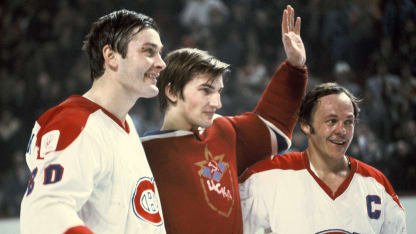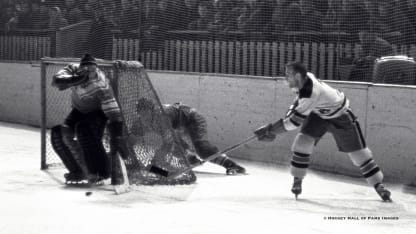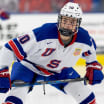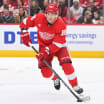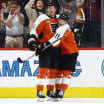Puchkov succeeded while staring down Russia's iron-fisted hockey bosses. He became the only Soviet player to plunge into the study of English, reading everything he could about Canadian hockey, angering tyrannical coach Anatoli Tarasov, the legendary Central Red Army coach, and fellow national team coach Arkady Chernyshov, head of Moscow Dynamo, by declaring that Canadians played a superior game and that unless the Soviets adopted a defensive style, Canada "will tear us apart."
He was blackballed, by most accounts, left off important rosters and overlooked for exhibition tours while lesser Russian goalies often would be torched, the goal light burning the back of their necks.
Finally, three years after helping his country to a 1960 Squaw Valley Olympic bronze medal, he quit the game to coach Leningrad Army. There he remained for 15 years, stressing an airtight defensive game which Tarasov, by now a bitter rival, sniffed at as being "Stone Age hockey."
Of course, the brilliant goaltender took to his grave the belief that his model was the bedrock of the Russian game. He was 75 when he died on Aug. 8, 2005, a half-century after having given Canadian hockey much more than it could handle on world championship and Olympic rinks.
On Monday, Canadian hockey will renew acquaintances in St. Petersburg, Russia, with the name of the man who decades ago gave them nightmares -- a Canadian team will take part in the 2017 Tournament of Nikolai Puchkov, an international event that will include teams from Russia, Finland and the Czech Republic.
Today, the contributions of a legendary, long-ago Russian goaltender are better appreciated and more widely celebrated than when he was alive, a sad, common fate whether the hockey pioneer is named Puchkov or Plante.
